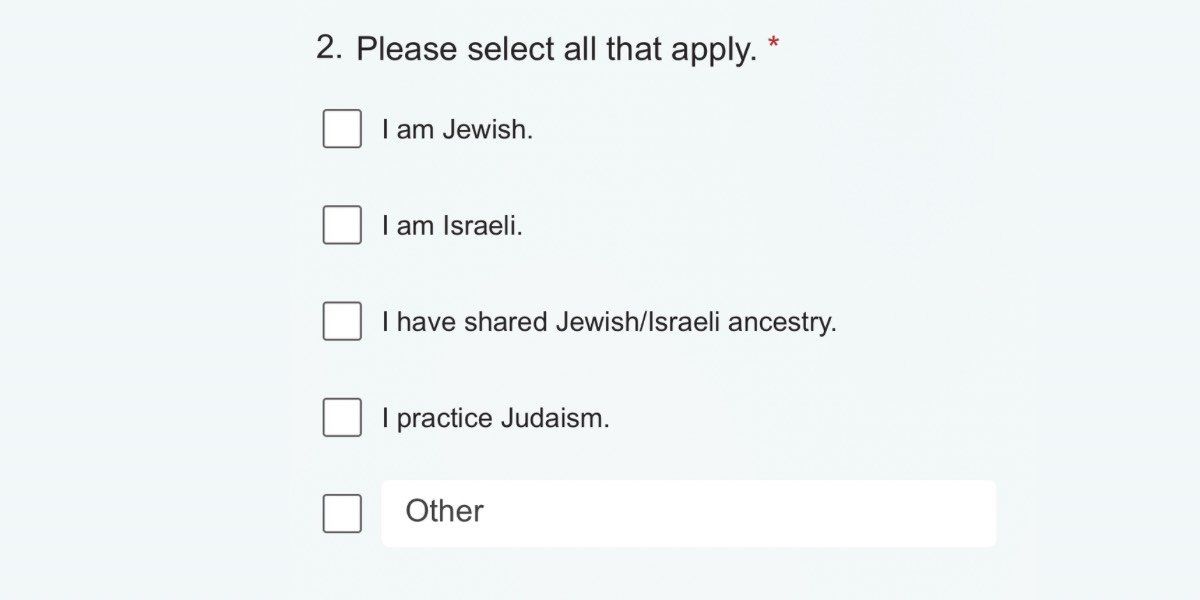April 23, 2025
On Monday, I received a text message that I assumed was spam. Today, I realized it was a very real survey from the US Equal Employment Opportunity Commission asking me if I was Jewish – and that it was sent to everyone on Barnard College’s payroll.
Background: Barnard College, a women’s college affiliated with Columbia University where I am a teacher’s assistant, has been under investigation by the EEOC for antisemitism amid frequent protests on campus over the last year. The faculty was not informed that their personal phone numbers had been sent to the government, but the school maintains that the EEOC was “legally entitled to obtain the contact information of Barnard’s employees” to conduct its investigation.
The Microsoft Form – which anyone can fill out if they have the link – first asks faculty whether they are Jewish or Israeli, their department, and their superiors’ names. It then asks whether they have experienced anything in a list of antisemitic events, ranging from “unwelcome comments, jokes, or discussions” and “harassment, intimidation, aggressive actions” to “antisemitic or anti-Israeli protests.”
Incidents of antisemitism have been documented since protests broke out on Columbia’s campus last year. But, so far, the government’s investigations into whether the administration was doing enough to prevent and punish antisemitic behavior was limited to the experiences of students.
Now, with the focus turning to professors, many faculty members are concerned the Trump administration is weaponizing the EEOC to infringe on college campuses. The survey comes as the Trump administration is citing allegations of unchecked antisemitism as justification for threatening to withhold federal funding unless it is granted the authority to conduct “audits” of academic programs and departments, and impose changes to the university’s governance structure and hiring practices.
These are unlikely to be the last texts. In March, the Department of Education sent letters to 60 universities informing them that they were under investigation for antisemitism. From the protests to the funding freezes, a pattern has presented itself in the upheavals on college campuses over the last year: They may begin at Columbia, but they don’t end there.From Your Site Articles
More For You
Ukraine's President Volodymyr Zelenskiy, Finland's President Alexander Stubb, Estonia’s Prime Minister, President of the European Commission Ursula von der Leyen and other European leaders visit memorial to fallen Ukrainian defenders at the Independent Square on the fourth anniversary of Russia's full-scale invasion, in Kyiv, Ukraine February 24, 2026.
Ukrainian Presidential Press Service/Handout via REUTERS
Somewhere in the Donbas region, Ukrainian soldier Artem Bondarenko says he hasn’t slept through the night in months as he defends Eastern Ukraine.
Most Popular
Members of the special units of the National Guard and the Secretaria de Seguridad Ciudadana stand guard in front of the Fiscalia General de la Republica, where the investigation into the operation in which Nemesio Oseguera Cervantes, alias "El Mencho", founder and leading head of the Cartel de Jalisco Nueva, was killed, is underway.
Félix Márquez/dpa via Reuters Connect
- YouTube
In this Quick Take, Ian Bremmer warns that US military strikes on Iran are “looking increasingly imminent” as diplomacy appears to stall.
© 2025 GZERO Media. All Rights Reserved | A Eurasia Group media company.
